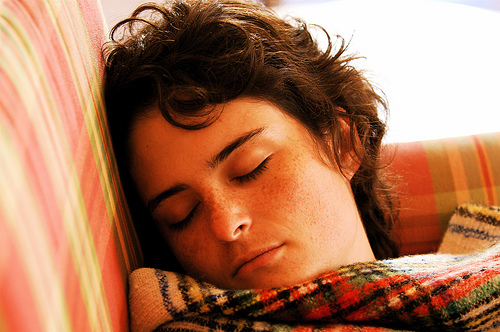You may think that dying in your sleep is the best way to pass. However, many family members find it disturbing if their loved one went to bed happy and healthy without any known health risks. Even though it can be quite shocking to lose a loved one in this manner, people dying in their sleep is an extremely common occurrence.
Dying in Your Sleep, Why Does It Happen?

Dying in sleep can be caused by various conditions; some are natural such as old age while some others are unexpected conditions that family members, even the person himself, do not even know.
1. Old Age
Our bodies are constantly aging as we continue to get older. The aging process creates many changes within our bodies as well as outside our bodies. Many people even have to take medications to help their body function properly.
Each of the 10 systems within your body is constantly checking and updating its functions to keep your body in check; eventually the systems slow and wear down. As the body gets older and closer to dying, it will naturally slow down over time.
2. Blood Clot
Most of the time small blood clots are not hazardous to one's health; however, when large clots begin to form they restrict the blood's movement which in turn may result in death. After severe accidents it is possible that blood clotting may be a cause of dying in your sleep. This will only happen if the clot affects the blood flow to your heart or brain.
The best precautionary actions that can be taken are doctors and other medical personnel using appropriate tests such as MRIs and CTs on trauma victims.
3. Sleep Apnea
Dying in your sleep is not as uncommon as you may think, especially if one has sleep apnea. Sleep apnea is a serious problem that infants, older adults, and other unhealthy individuals have developed.
It is important for these people and their loved ones to pay close attention to their sleep patterns because they physically stop breathing for 10-60 seconds several times throughout the night. This is why loved ones with sleep apnea are at higher risk of death; if their body is unable to begin breathing in time they will eventually suffocate.
4. Sudden Arrhythmia Death Syndrome (SADS)
Sudden arrhythmia death syndrome (SADS) is commonly used to describe a sudden, otherwise undetermined cause of death. It is not a disease that someone already has; most of the time it is due to other health issues such as genetic heart conditions which may have been undiagnosed in an otherwise healthy individual.
There is not any surefire way to avoid SADS; however, if you know of any family history for heart conditions or you begin to feel sudden changes in your chest, you need to seek medical help to treat the health problem.
5. Sudden Infant Death Syndrome
Sudden infant death syndrome is very similar to SADS except that it applies solely to infants. SIDS is responsible for some of the most grievous deaths that occur in infants under one year of age; most of the time they occur between 2 and 4 months of age. Unfortunately SIDS is only used to explain the unexplained; when no one, even after a thorough autopsy can conclude the reason of death, it is referred to as SIDS.
There are not any 100% preventative measure that can be taken because there are not any explained causes of SIDS; however, some people have theorized that it may be linked to birth defects, infections, or other biological vulnerabilities. One way parents can aid in preventing SIDS is by ensuring that all blankets, pillows, stuffed animals, and other precautions are taken when the baby is laid in the crib.
6. Sudden Cardiac Arrest
Sudden cardiac death (SCD) occurs when the heart suddenly loses its proper functioning abilities. SCD is actually the number one cause of natural deaths in the United States every year.
When the electrical system that controls the heart becomes irregular, the heart may begin to beat too fast. The fast heart beat causes what is known as ventricular fibrillation, which is the flutter of the ventricles. At this time the blood is not able to properly flow throughout the body and the brain, causing unconsciousness.
Without immediate treatment, the lack of blood flow may cause death. Some signs that you need to seek immediate treatment are dizziness, racing heartbeat, or other irregular heart rhythm.
7. Heart Attack
When one or more of the heart's arteries becomes blocked, a heart attack may occur. This is due to the inability of oxygen to appropriately travel to the heart.
There are many warning signs for a heart attack; however, in today's society many people blame them on other things. If you have any discomfort, heaviness, pressure, or pain in the chest, breastbone area or arm, it is important that you pay attention and seek medical help. These are often the first signs of a heart attack.
Other symptoms that you may encounter in groups or individually include:
- Discomfort that moves to the back, jaw, throat or arm
- Indigestion or heartburn that causes choking
- Fever like symptoms such as sweating, nausea, vomiting and dizziness
- Irregular heartbeats that are abnormally fast or slow
Many of these symptoms may last 30 minutes or longer and may be combined with others. One way to avoid the risk of dying in your sleep is to visit your doctor if you experience any of the above symptoms.
